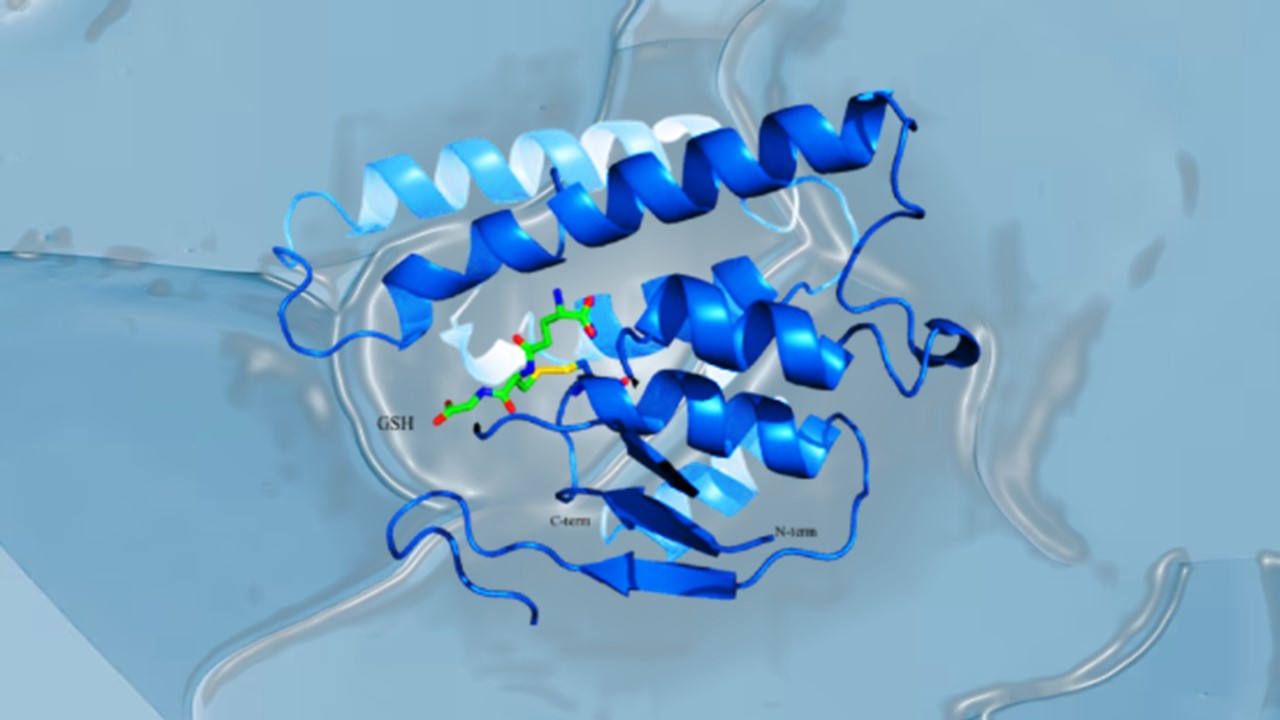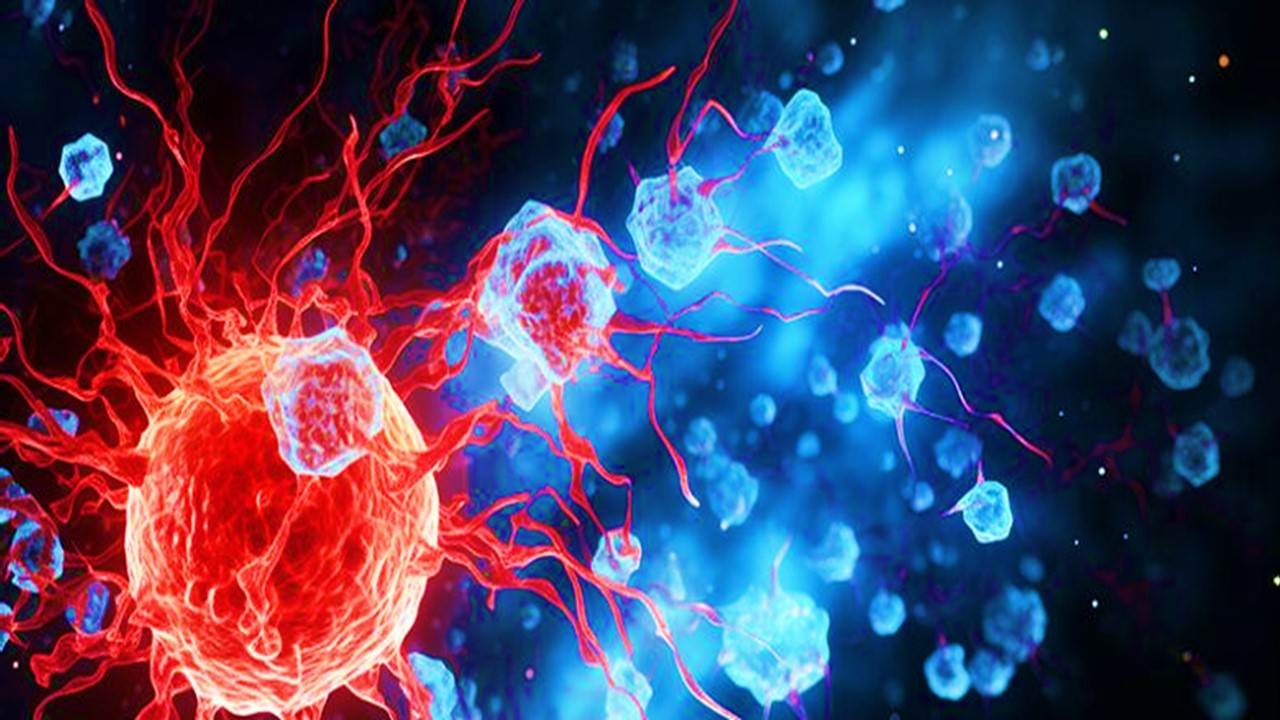The advent of T-cell based therapies has made waves throughout the field of oncology, with the promise of potent immunotherapies to fight off cancer through the regulation of T-cell promoting or suppressing mechanisms. Yet T-cells are not the only arm of the immune system that can fend off tumours. Natural Killer (NK) cells, which are part of the innate immune response, also show potential, with numerous possible applications. Yet as with any field, they also face limitations that need to be overcome before they can earn a place of prominence in the world of oncology.
The role of the immune system in detecting and destroying cells which no longer follow the normal cellular cycle is widely accepted. Corollary to this is the acceptance of the immune editing process that occurs during tumor progression. In the early stages, immunosurveillance of the tumour is successful in eliminating offending cells; this is followed by the equilibrium stage, during which some cancerous cells manage to survive immune attacks. The final phase, that of immune escape, is characterized by positive growth of the tumour and may be accompanied by a tumour microenvironment that is suppressive of the immune system.
Innate or Adaptive?
Immunoediting affects both the innate and the adaptive arms of the immune system, with the ultimate goal of rendering them harmless for the tumor. Immuno-oncology seeks to reverse this effect through reinvigorating immune responses against cancer – but most efforts have been focused on cytotoxic T-cells, particularly through immune checkpoint inhibitors. As part of the innate immune response, and unlike T-cells, NK cells do not possess the capacity to distinguish between multitudes of antigens. Instead rely on self vs non-self recognition through a broad variety of activating or inhibitory signals. Whether NK cells are activated against an entity or tolerate it as self is the net sum of these activating and inhibitory signals, rather than the result of any single antigen.
It should be noted that a growing body of research is establishing the flexibility of NK cells in responding to different signals, resulting in them blurring the lines between innate and adaptive immunity – as they may be said to exhibit features of both. These features include memory NK cells observed in mice models subsequent to cytomegalovirus, influenza, VSV and even HIV-1 infections. Studies have also shown that mature NK cells may still adjust their tolerance for different signals, indicative of a more adaptive nature.
Natural Killers
This can provide obvious advantages for NK-based therapies. Without the need for specific antigens for their activation, NK cells require no prior sensitization to tumor presented antigens to deliver their cytotoxic effects. NK cells instead only require exposure to Major Histocompatibility Complex (MHC) Class I receptors to become licensed, after which they are fully functional. This allows them to respond to multiple signals that T-cells cannot: for example, the loss of MHC Class I receptors in tumors can present an insurmountable barrier for T-cell-based therapies as MHC is critical for antigen presentation. On the contrary, the absence of any MHC Class I receptors is a strong stimulus for the activation of NK cells.
NK cells also play a critical role in the destruction of tumour cells opsonized by antibodies, through Antibody-Dependent Cell Mediated Cytotoxicity – which demonstrates the significance of NK cells with regards to monoclonal antibody treatments such as trastuzumab and rituximab. NK cells also upregulate the production of pro-inflammatory cytokines which, in addition to their own anti-proliferative effects, also further stimulate the T cell response against the tumor. This illustrates that while the direct effects of NK cells themselves are potent, immunotherapies which examine the entirety of the immune response in a holistic approach show potential for highly synergistic therapeutics.
Current Technologies
One of the most established beneficial procedures involving NK cells has been with allogeneic Hematopoietic Stem Cell Transplantation (HSCT), where infusion with alloreactive NK cells prior to the transplantation has been shown to be highly effective in reducing the risk for graft versus host disease. This enabled more transplants to occur with less stringent donor compatibility criteria. However, NK cell-based treatments have moved past the transplantation domain towards stand-alone therapies – with two broad categories of immunotherapies: adoptive NK cell therapies or auxiliary agents which may serve to promote NK activity, such as NK cell engagers, cytokines or immune checkpoint inhibitors.
Adoptive NK therapies were traditionally sourced from peripheral or umbilical cord blood, or through cloned NK cell lines with well established effects, but these present significant logistical limitations – particularly with sourcing and administering the agents. The use of induced Pluripotent Stem Cells (iPSC) to produce mass volumes of NK cells promises to revolutionize the field. The procedure involves adult cells being induced to differentiate into NK cells, enabling a well-characterized and reproducible generation process that can enable clinical trials that would otherwise face shortages of therapeutic material. iPSC technology can also enable the exploration of further Chimeric Antigen Receptor (CAR) NK therapies. iPSC technology is becoming increasingly critical to realizing the vision of “off-the-shelf” NK based treatments that do not need to be tailored to individual patients.
NK therapies also exhibit a significantly lower risk of cytokine release syndrome than T-cell based treatments. However, they face some similar limitations – particularly in the field of solid tumours, it remains unlikely that NK cells will be better at infiltrating the hostile and suppressive tumour microenvironment without further developments in the field. Immune checkpoint inhibitors have shown potential in stimulating both the T-cell and NK-cell responses. NK-based therapies are also limited by the short lifetimes of NK cells themselves, though extending this may be possible.
Natural Killer cells display characteristics that are uniquely suited for our fight against cancer – as immunotherapy continues to emerge as the fifth pillar of oncology, a more holistic examination of the entire immune response is becoming increasingly necessary. NK-cells show deep levels of interaction with other promising agents, such as T-cells and cytokines – and can also complement those treatments.
Join Proventa International’s Oncology Strategy Meeting in Boston to hear the latest insights on NK therapeutics and wider trends in novel modalities in the field of cancer research
Subscribe
to get our
LATEST NEWS
Related Posts

Immunology & Oncology
The Silent Guardian: How GAS1 Shapes the Landscape of Metastatic Melanoma
GAS1’s discovery represents a beacon of hope in the fight against metastatic disease.

Immunology & Oncology
Resistance Mechanisms Unveiled: The Role of Glutathione S-Transferase in Cancer Therapy Failures
Understanding this dual role of GSTs as both protectors and accomplices to malignancies is central to tackling drug resistance.
Read More Articles
Myosin’s Molecular Toggle: How Dimerization of the Globular Tail Domain Controls the Motor Function of Myo5a
Myo5a exists in either an inhibited, triangulated rest or an extended, motile activation, each conformation dictated by the interplay between the GTD and its surroundings.
Designing Better Sugar Stoppers: Engineering Selective α-Glucosidase Inhibitors via Fragment-Based Dynamic Chemistry
One of the most pressing challenges in anti-diabetic therapy is reducing the unpleasant and often debilitating gastrointestinal side effects that accompany α-amylase inhibition.













